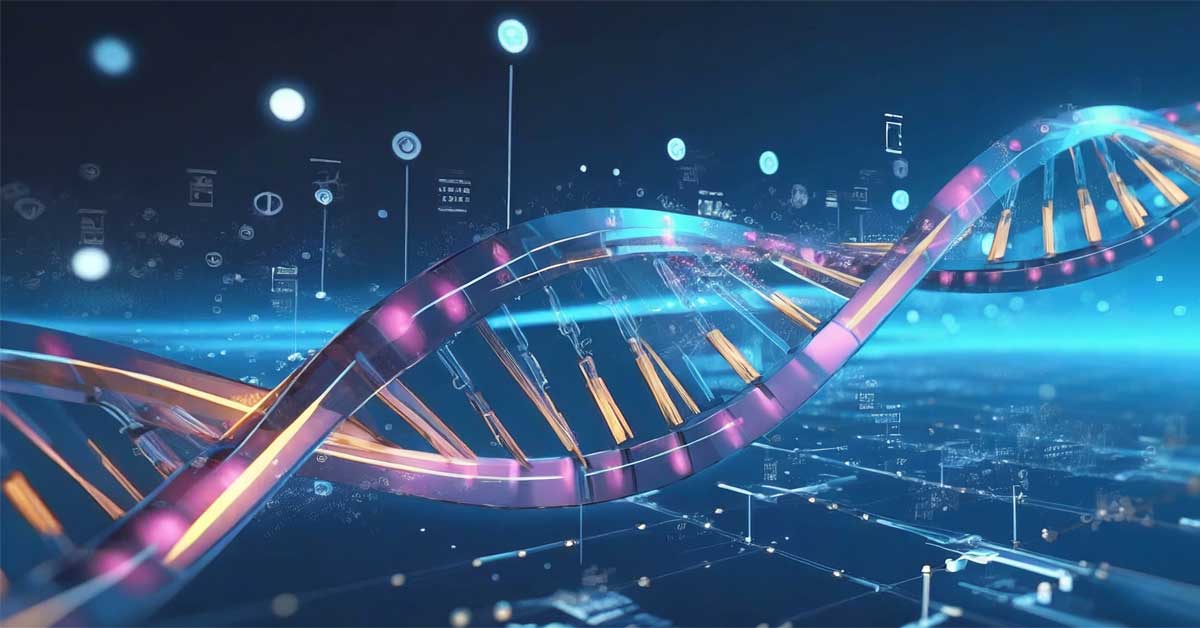Artificial intelligence (AI) is changing already changing so much in our day-to-day lives. Sometimes, without even noticing. Machine learning (ML) is a part of AI where computers get intelligent by training on data loads. Then there's deep learning, a part of ML that mimics how humans think.
We talked about how AI helps in a lot of industries like medicine, advertising, etc. In biology, AI is a big help, too. It's making things like image analysis, figuring out protein structures, and even drug discovery way easier.
Researchers in biology are getting into AI to crack some really tough questions. Using AI in biology research isn't an easy task; it's pretty new and can get complex.
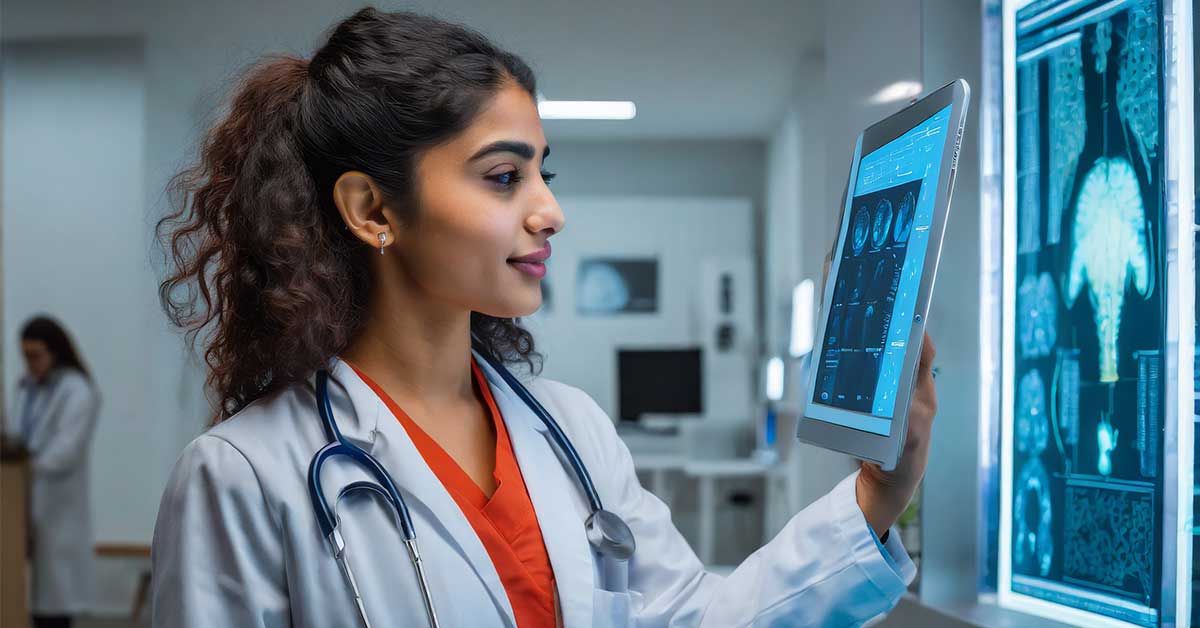
Artificial Intelligence in Biological Sciences
With the growing size of data in big data, solving problems is becoming more challenging because of the massive amount of data requiring processing.
Thankfully, AI comes to the rescue! It allows researchers to concentrate on the overall objectives instead of getting bogged down in analyzing hundreds or thousands of separate images or data points.
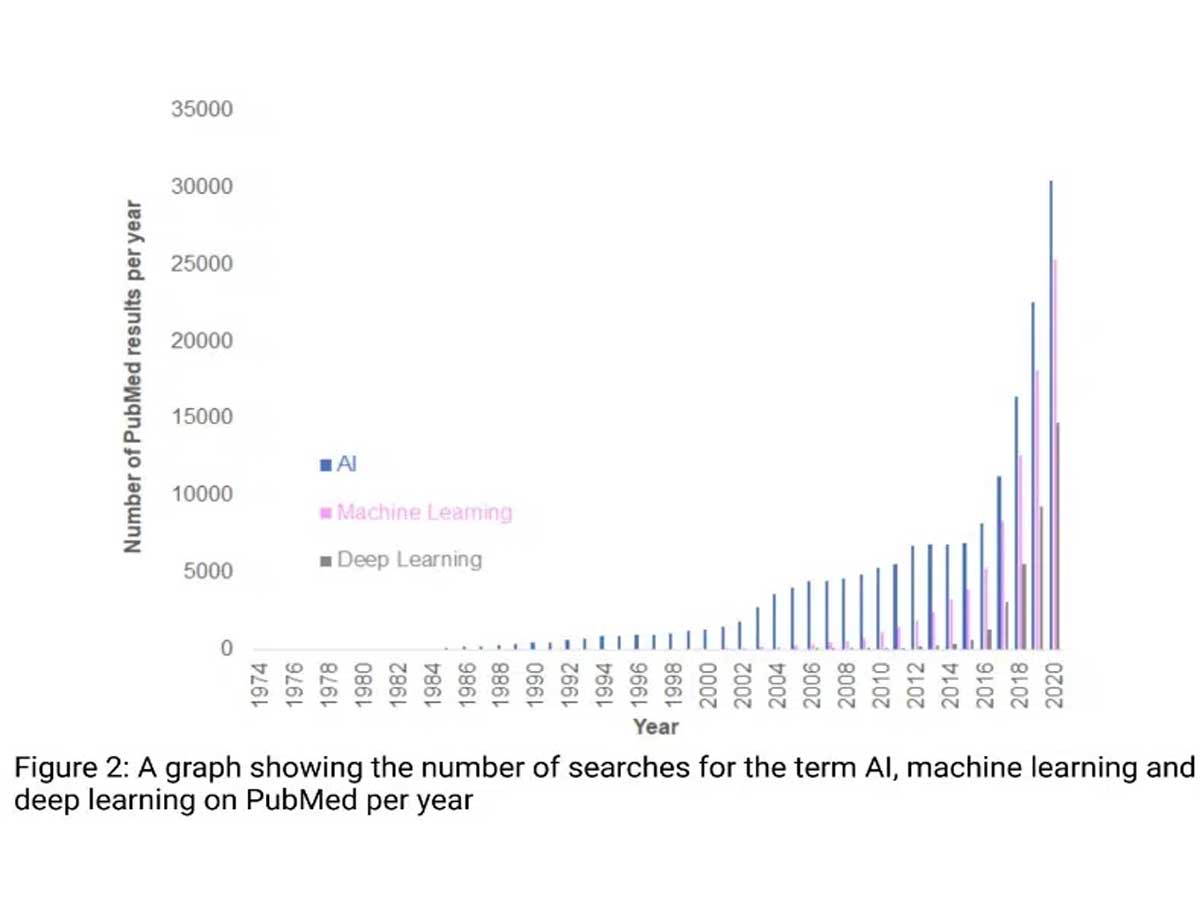
In an environment where research funding is scarce, and competition is fierce, AI plays a crucial role in maintaining a competitive edge. In biological science, intelligent systems have many more use cases. So let me tell you a bit more about it.
1. Artificial Intelligence (AI) in Medical Science
In the world of medical science and biotechnology, things are getting pretty exciting. We're seeing some serious breakthroughs in making new medications and antibiotics.
And guess what? AI is playing a huge part, especially in the pharmaceutical industry. It's helping find new therapeutic molecules and changing things in disease diagnosis.
Thanks to AI and Machine Learning (ML), doctors are getting way better at spotting diseases and understanding complex situations like quantitative and predictive epidemiology and even host–pathogen interactions.
And it's not just about diagnosing diseases. AI makes it easier for everyone to understand computer code and plays a big role in predictive epidemiology and precision medicine.
This tech is improving how we diagnose diseases, making predictions more accurate, and speeding up decision-making. AI-based biomarkers that are helping doctors predict how patients will respond to treatments.
Precision medicine is another area where AI is a game changer. It's all about tailoring treatments to an individual's genetics, ecology, and lifestyle. AI helps in figuring out the best treatment options for specific cases.
It's even being used in DNA, RNA, and protein studies to see how drugs affect our bodies over time. Tools like IBM Watson also create personalized treatment plans based on a patient's medical history and genetic makeup.
AI also makes things easier in gene editing, radiography, and drug management. It's improving Electronic Health Records (EHRs) with smart decision-support systems.
And with its massive processing power and intelligent algorithms, AI is helping develop new models for understanding diseases and predicting medication side effects.
There are some neat examples, too, like how AI is helping in the early detection of myopia and even outperforming doctors in fields like cardiology, dermatology, and oncology.
Did you know AI algorithms can spot metastatic breast cancer with more than 91% accuracy? Add a doctor's input, and that accuracy jumps to 99.5%!
In cardiology, AI is diagnosing heart issues through advanced imaging techniques. Even this YOLOV3 algorithm is being used to detect prostate issues in MRI images.
Plus, AI is great at figuring out which bugs resist certain antibiotics, helping doctors avoid unnecessary tests and treatments.
AI is not just about diagnosing; it's revolutionizing drug discovery, too. It's reducing the need for lengthy clinical trials, helping predict diseases earlier, and even improving natural language processing (NLP), machine learning, and robotic process automation in medicine.
2. AI in Agricultural Biotechnology
AI is really making a difference in fields like face recognition, cancer prediction in tissue, and metabolic flux analysis, and now it's making big waves in agriculture, too.
With the United Nations Food and Agriculture Organization (FAO) warning us about the global population hitting over 9 billion by 2050, it's clear that agriculture needs to step up. This sector isn't just about feeding the masses in places like India.
Right now, about 38% of our planet's land is dedicated to agriculture, but many of it is still stuck doing things the old-fashioned way. AI and automation could really turn things around here, expanding yields and making everything more efficient.
We're talking about using AI for everything from soil to crop management and even predicting how much water and fertilizer we need.
Drones and robots are getting in on the action, helping with real-time crop monitoring and even harvesting. These high-tech helpers are getting their smarts from deep learning and computer vision techniques.
Plus, with ML, we can even get a heads-up on weather changes and monsoon timings, especially in places like India.
AI isn't just about the big picture stuff, though. It's making a difference right down to the plant level, with AI-based biosensors spotting diseases early, even in plants that look perfectly healthy.
And with gadgets like EfficientNetV2, an AI-powered drone, we can accurately detect and classify plant diseases.
But it's not all about spotting problems. AI is also helping us figure out the best genetic tweaks for healthier, more robust plants. This means we can start moving away from the not-so-green side of the green revolution, where we use way too many chemicals.
Now, with AI-based smart sprayers and remote sensing systems, we can be way more precise and sustainable.
Governments are getting in on the action, too. Take the NaLamKI action plan funded by the German government, for example. They're all about creating AI-based software to help farmers make smarter decisions.
And as we move from first-gen AI, which focuses on specific data sets, to the next-gen stuff handling massive multi-omics data, we're looking at a future where farming is smarter, more sustainable, and ready to face the challenges of a growing world.
3. AI in Agricultural Biotechnology
Industrial biotechnology, or white biotechnology, is all about using biotechnology for sustainable manufacturing, turning renewable sources into everything from chemicals to fuels using cells and enzymes. Lately, there's a huge demand for things like industrial chemicals, medicines, and food-grade chemicals.
Here's where AI and ML create new pharmaceuticals, figuring out what works and what doesn't and speeding up the journey from the lab to the consumer; they use microorganisms and plant/animal cells in biotech processes to make a whole range of products, including disinfectants, pulp, and textiles.
Plus, with the Internet of Things, ML, and AI, we're getting better at preventing outages, making manufacturing more efficient, and even bumping up product quality.
AI-based computer models are actually helping optimize growth conditions for producing stuff efficiently. Take, for example, amylase production from Rhizopus microspores or glucansucrase from Leuconostoc dextranicum.
These processes got a big boost from AI algorithms like ANN and GA. And it's not just about small-scale lab stuff; AI is also making waves in scaling up enzyme production, like the laccase from Staphylococcus Arlette.
In bioenergy, AI's helping predict the best ways to turn biomass into fuel. This tech isn't just smart; it's practical, like using ANN-GA models for turning peanut shells into biofuel. For the green-minded, AI's helping make things like textiles and biodegradable biopolymers.
Systems metabolic engineering is another cool area where ML is making a big impact, helping churn out chemicals and minerals more efficiently. And it's not just in the lab – biotech businesses are catching on and incorporating ML in their production systems.
In the brewery world, AI's changing the game. It's helping determine the best aromas for beer using smart e-nose technologies and even predicting the ins and outs of white wine fermentation. This tech is making processes smarter and helping industries grow sustainably.
Applications of Artificial Intelligence in Biology
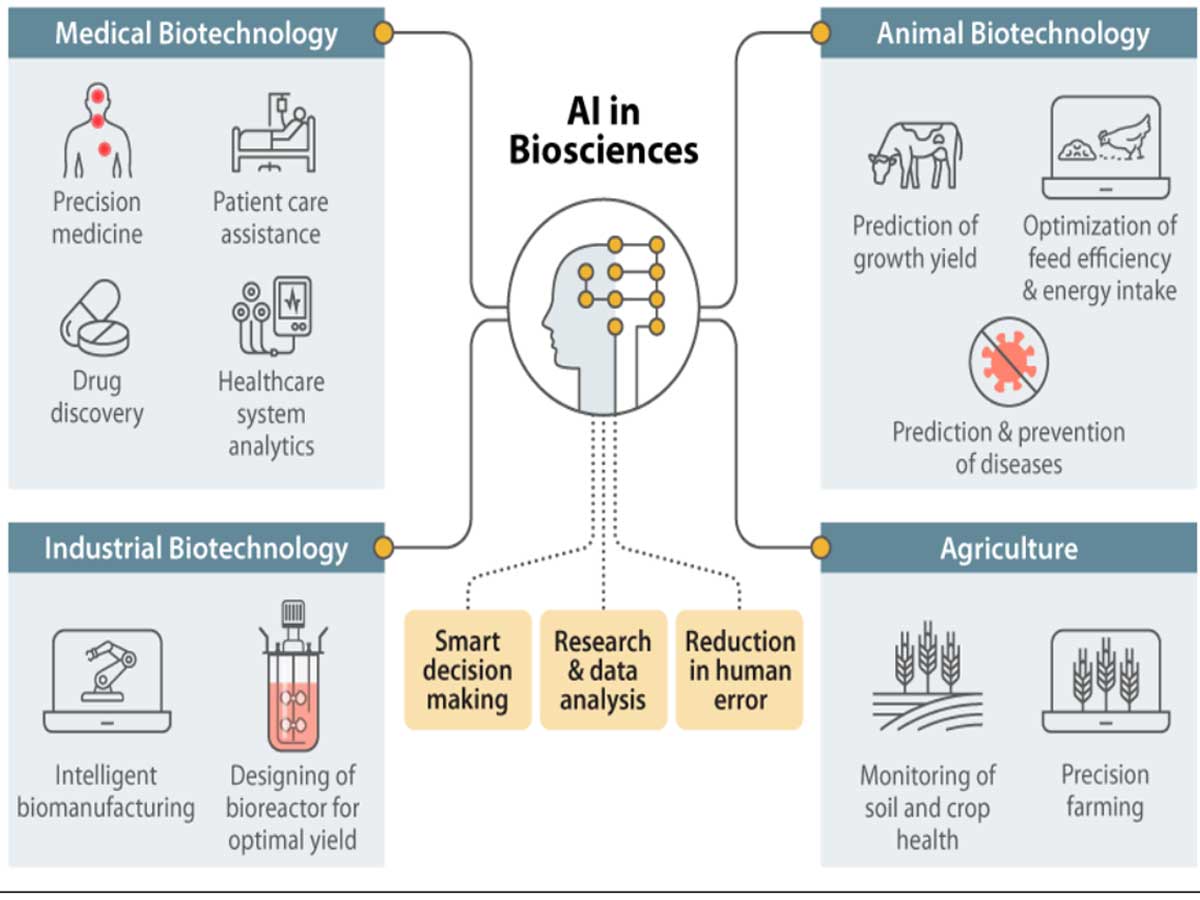
AI helps in biology, handling everything from microscopy image analysis to protein structure prediction and drug discovery; a quick search on PubMed for 'AI,' 'machine learning,' and 'deep learning' shows how hot these topics are in the bio world.
Several recent reviews extensively discuss the applications of AI in biology; let me highlight three specific examples.
- Image analysis.
- Protein structure prediction.
- Drug discovery.
Image analysis & Artificial Intelligence
Researchers often bump into many hurdles in biology, especially in image analysis. Consider issues like sample heterogeneity and the ever-present risk of human error, not to mention the brain-bending complexity of tasks they've got to handle. Oh, and let's not forget the massive data volumes that can make the whole process seem like it's carrying on forever.
Take Aivia from Leica Microsystems, for example. It's a star player in the field of AI in image analysis. Aivia doesn't just use machine learning to figure out what's in an image; it also taps into deep learning to enhance those images' clarity.
AI is also making waves in diagnosing infectious diseases – a job usually left to highly skilled microbiologists or pathologists who, let's face it, aren't immune to making mistakes.
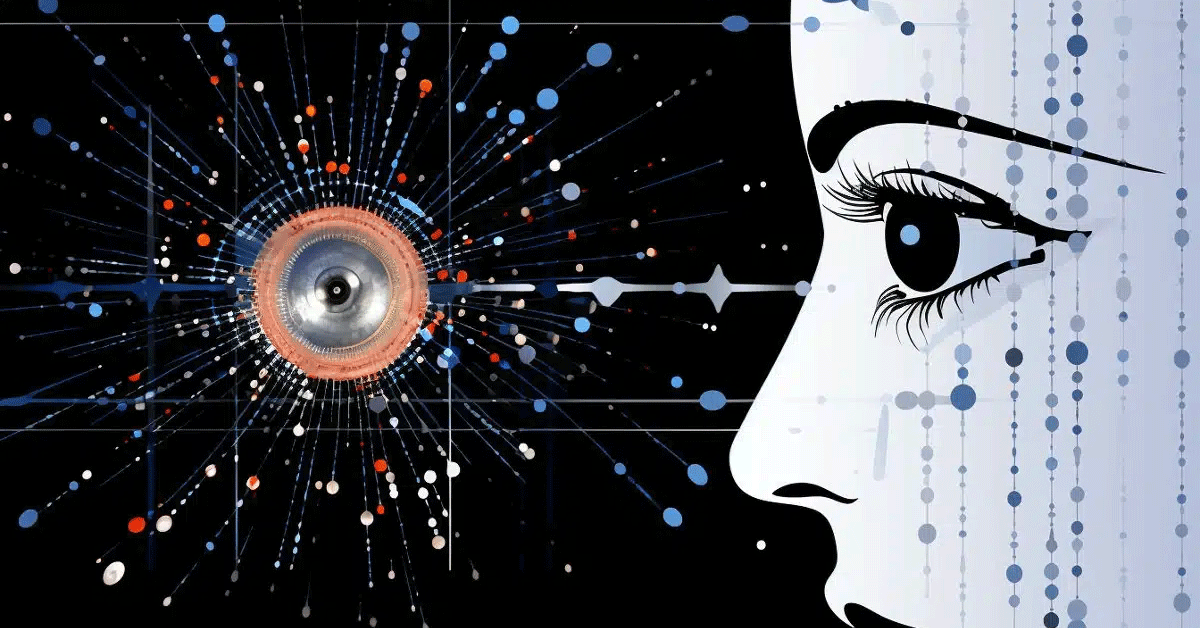
Protein structure prediction & Artificial Intelligence
In biology, there's AlphaFold. This tool is a brilliant example of how Artificial Intelligence (AI) changes the game, especially when predicting protein structures. AlphaFold nails it down to the atomic level, and it doesn't even need existing similar structures to do its magic.
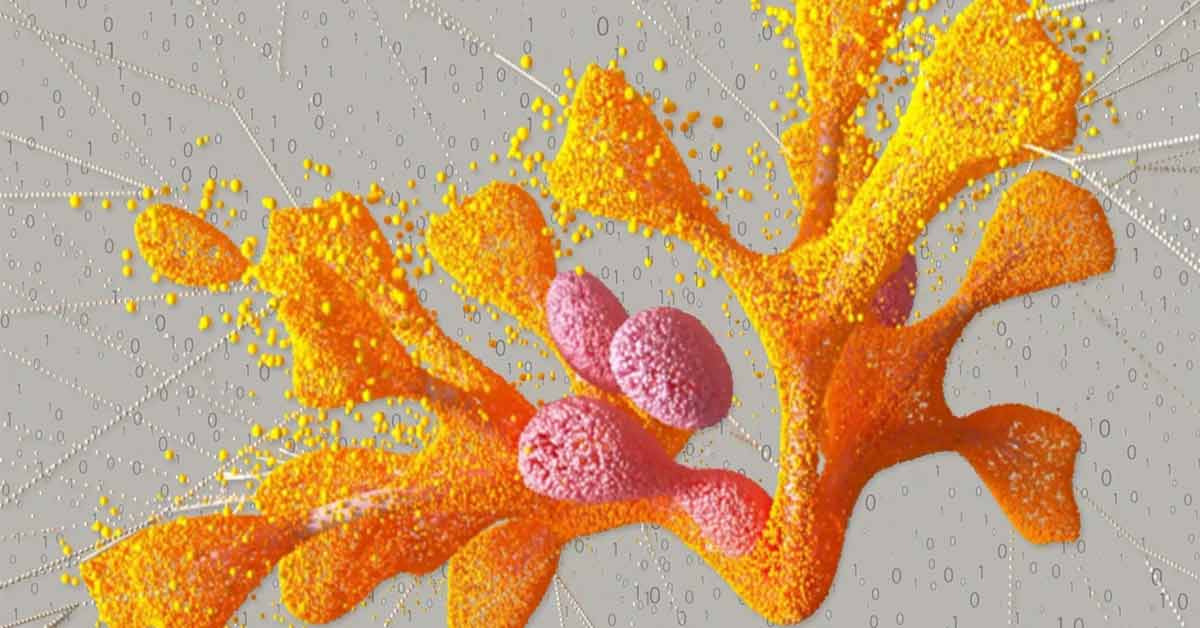
A sophisticated neural network that's savvy in both the physical and biological aspects of proteins topped off with multi-sequence alignments in its deep learning algorithm, is behind this. Understanding proteins with AlphaFold could revolutionize our grasp on diseases and the evolution of life's crucial enzymes.
Drug Discovery & Artificial Intelligence
Drug discovery used to be slow-going. Researchers spent ages
going through countless compounds, hoping to find the one with the right antibacterial punch for a new antibiotic. But, these libraries' sheer size and complexity made it harder for any lab or scientist. That's where AI and machine learning have stepped in to shake things up.
Here's the cool part: AI plays a crucial role in three ways.
First, it has the ability to predict potential compounds' properties. This means no more wasting time and resources on duds.
Second, AI is like a molecular matchmaker, helping create new compounds that are more probable to be winners in medicine.
And third, it's taking care of the monotonous tasks of evaluating how effective a drug might be.
AI's got some real skin in the game with the development of a groundbreaking anti-cancer drug. This A2 receptor antagonist drug is designed to give T cells a leg up in fighting cancer. Researchers used an AI-aided drug discovery program to sift through many possibilities, eventually zeroing in on this exciting new candidate.
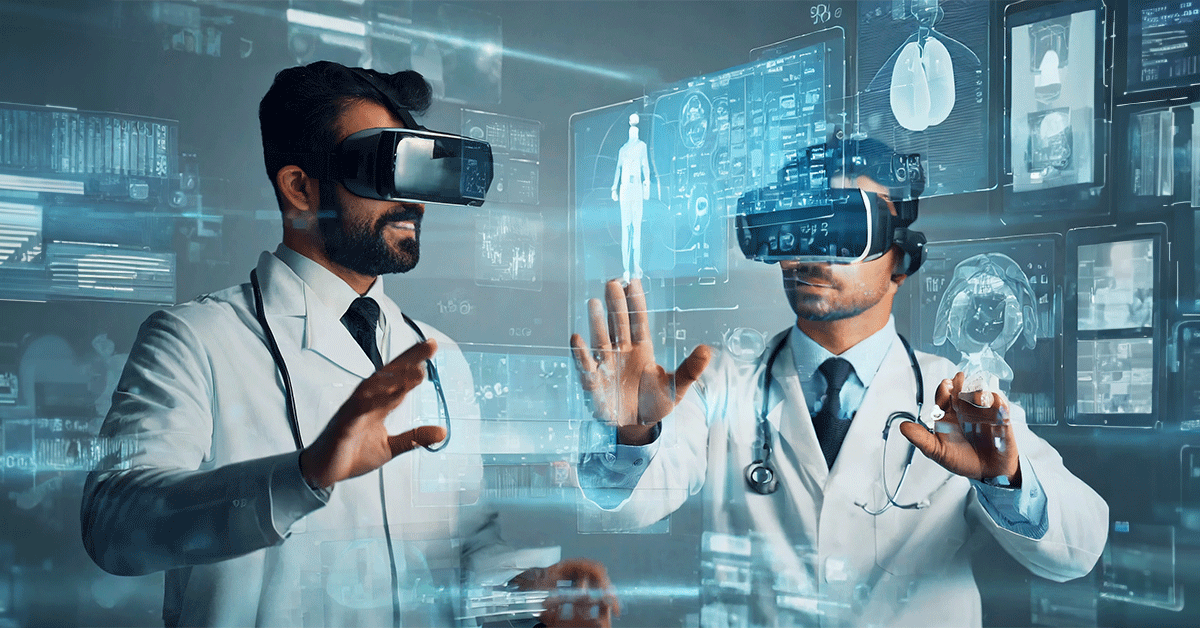
BioAutoMATED
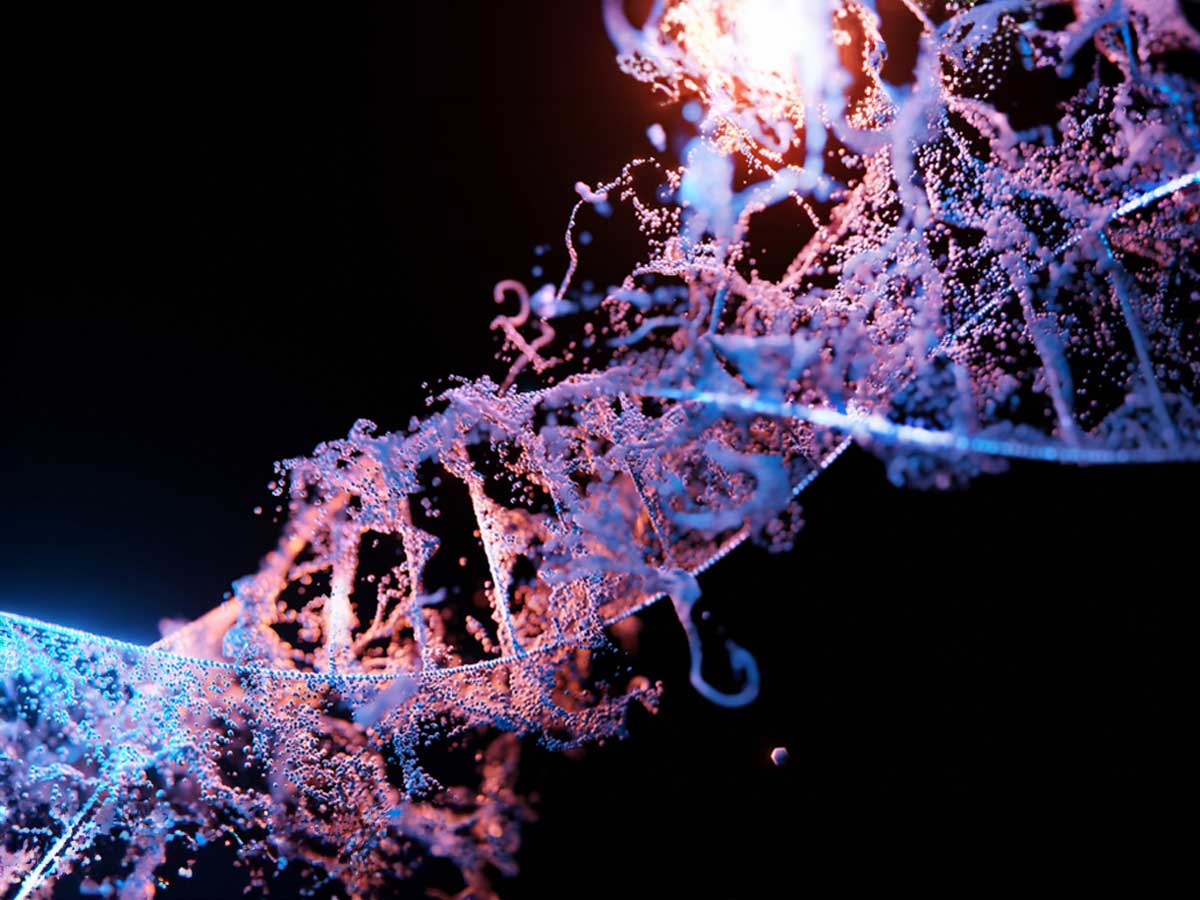
The best and one of the latest examples of Artificial intelligence systems helping biology is BioAutoMATED.
A team at MIT, led by Jim Collins, has rolled out something neat for the science world: BioAutoMATED. It's an open-source machine-learning platform about makes AI a breeze for biology research.
Published in Cell Systems, the paper on BioAutoMATED explains how it essays the problematic bits of machine learning, like picking the right model and getting data ready – stuff that usually wastes time. That's a game-changer, especially when dealing with complex DNA and RNA sequences.
What's super cool about BioAutoMATED is its range of supervised ML models. It's especially handy for labs with smaller or more problematic datasets. Plus, it's designed to be easy for anyone to use – they're inviting folks to tinker with and improve the code.
Thanks to the Defense Threat Reduction Agency and the National Institute of Allergy and Infectious Diseases, BioAutoMATED is part of the wider Antibiotics-AI Project.
